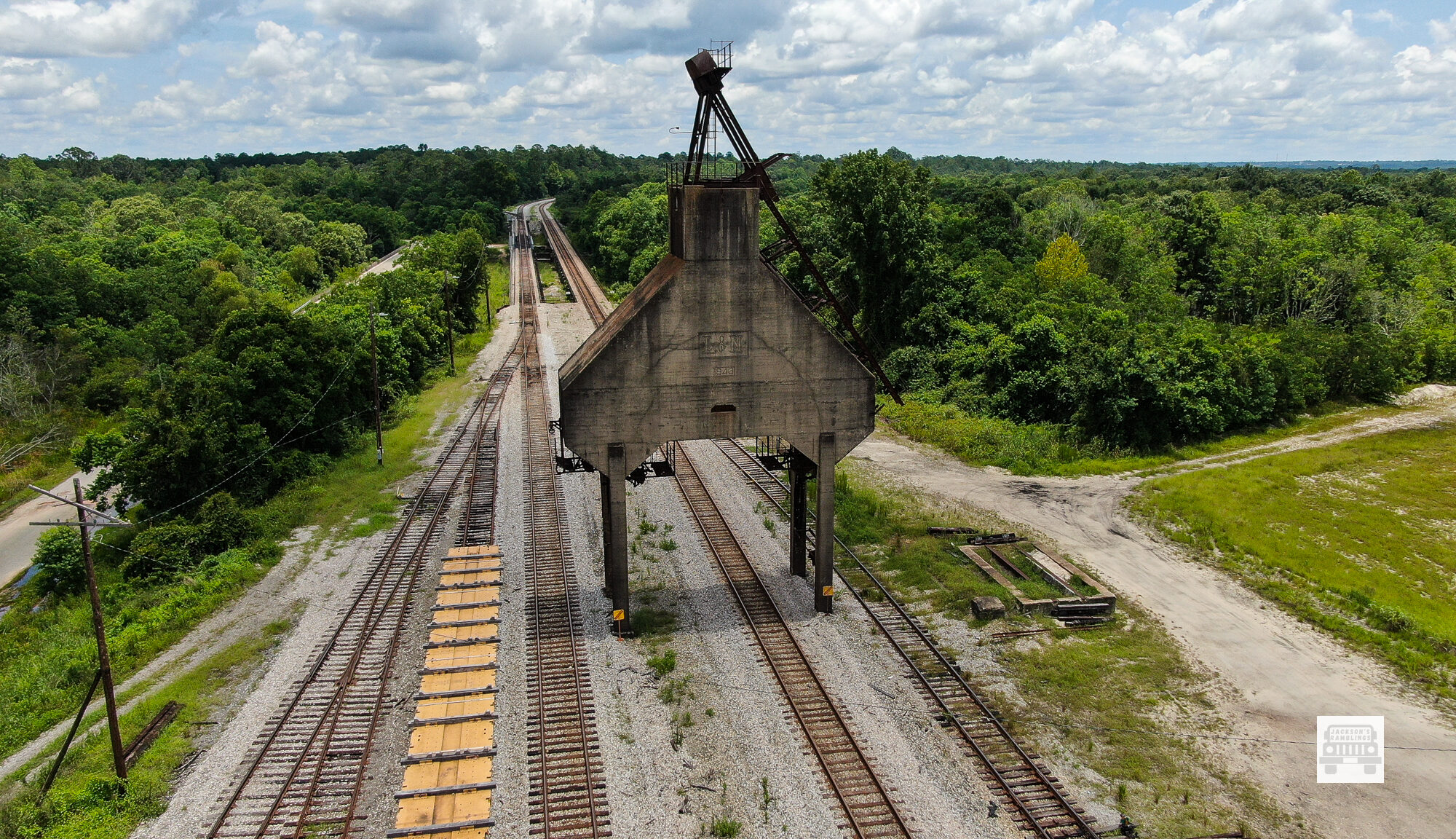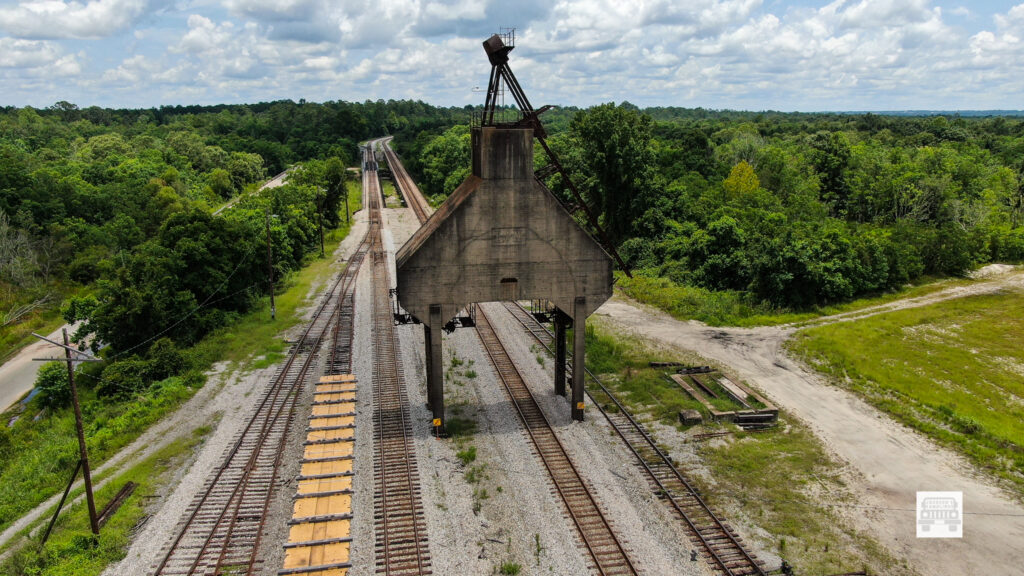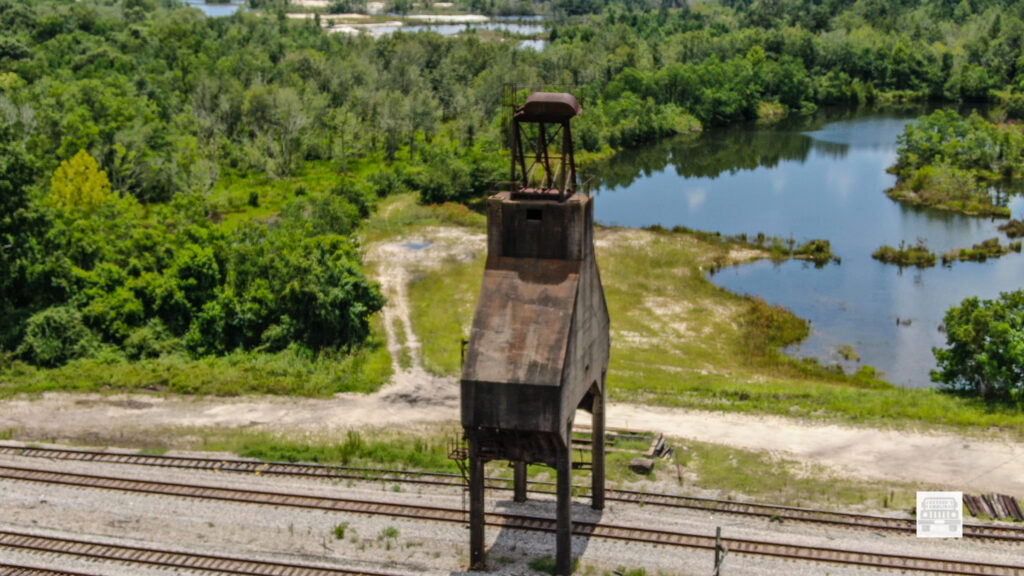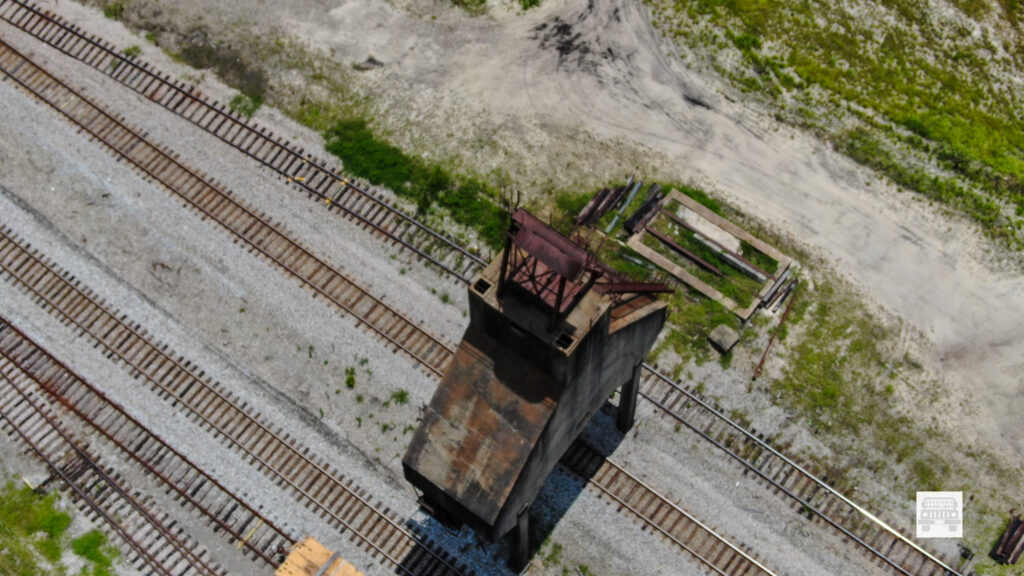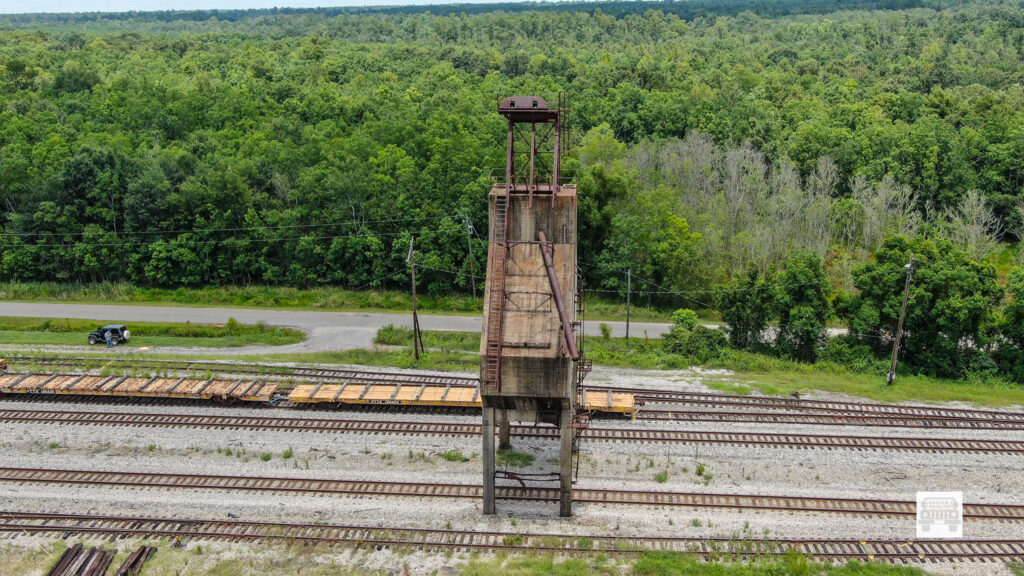Now I don’t know about you but I am one who wants to know everything that there is to know about anything that I am presented with that is of interest.
I like fire towers, historic churches, historic anything basically. I like railroads, trains, and about any kind of equipment you can name as well. It doesn’t matter if it is running, siting on display or just in a picture. I guess I am just made that way.
Recently I saw a picture of the coaling tower at Flomaton, Al. that a friend of mine tagged me in on social media. According to the post it was going to be torn down. My friend asked me if I had any drone shots of it.
Oh, I forgot to say above I love drones also. I love to take photos with them and make videos with them and anything else that can be done with them.
Then he said they are going to tear it down next week. Now understand something. Up till that moment I did not even know that it existed. Also, I was not even certain what it was nor what it did. However, if it was something that big, and it stood at the railroad, I was interested.
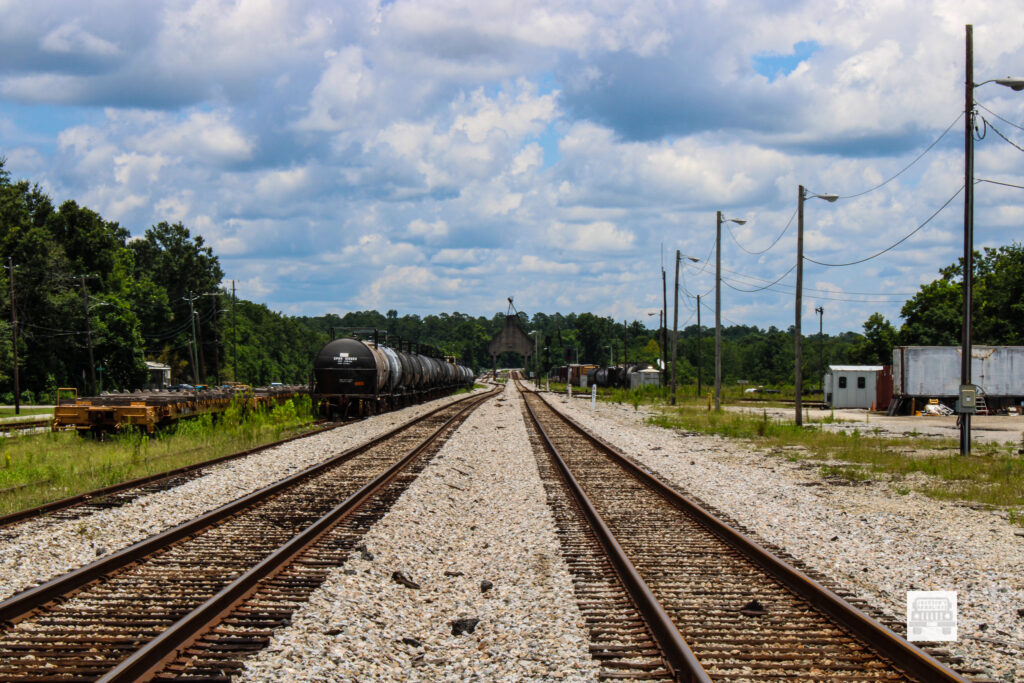
I immediately started researching. What I found out was that this was a large concrete bin so to speak that they put coal into, and a steam engine would come underneath it and stop. Then when the coal car that was used to carry the coal to power the locomotive was in the right position a gate underneath the big concrete thing would open and coal would pour out into the coal car.
Also, as I researched I found that the proper name for this concrete thing was a Coaling Tower. I also learned that that normally where one was there was a source of water to fill the water tanks on the steam engine. You know coal makes heat; water heated makes steam. Gotta have water for steam and gotta have coal to heat the water. Then I read somewhere that normally there was a way to put sand on a locomotive also. Sand is put on the tracks so the wheels will grip. I knew that from watching trains as a kid. So they did all three normally at that one place.
Upon further reading I found that normally one of these “Coaling Towers” would be placed in a train yard or area where they serviced engines.
Now I found out what it was and all I had left to find out was where it was, when it was.
This particular one was built in 1943. It was in the train yard at Flomaton, Alabama. Flomaton Alabama is a small town located on the Alabama, Florida line. In fact, as you pass over the bridge that goes over the railroad at the other end of the rail yard from the coaling tower you cross into Florida.
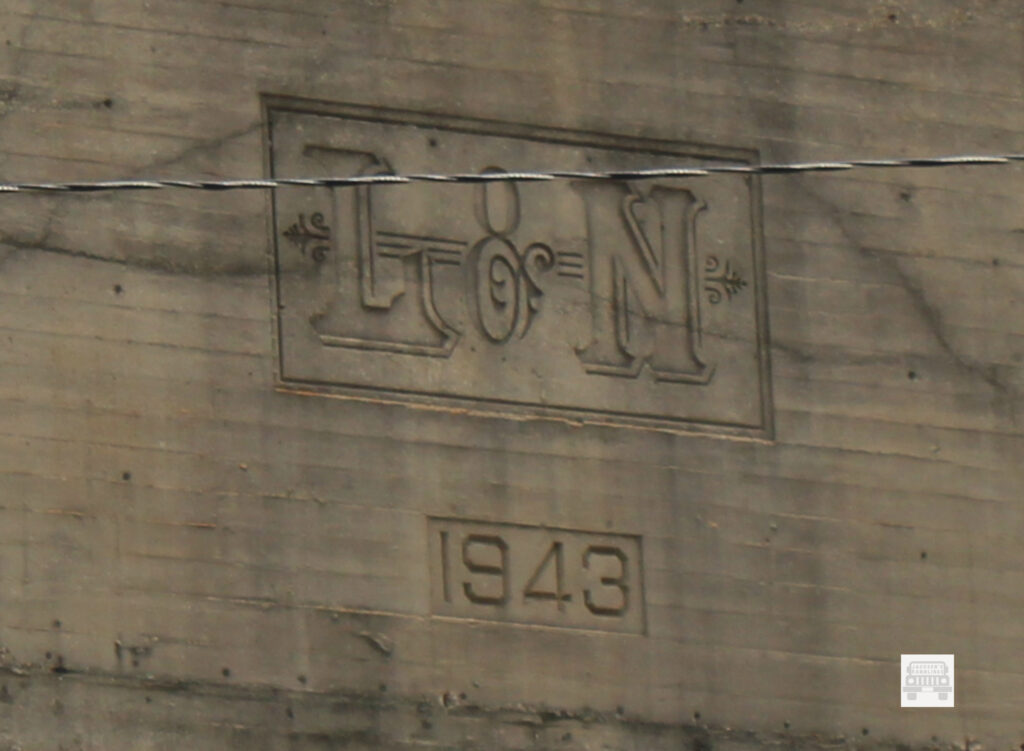
Now with all of that information and hearing that this one was about to come down, I had to go see it.
Driving up to it, for me anyway it was a sight to behold. I had never seen one of those. Big equipment, coal handling equipment, conveyors, and the like. I had seen this stuff, worked on this stuff, been there done that.
Two things about this thing though jumped out at me. First off it was over the railroad. Did I say I was fascinated with railroads? If I did, I will say it again. I am fascinated with anything associated with railroads. Secondly It had engraved on the cement up high the numbers 1943 and it had L&N engraved on it.
Now with that it had my full 100% attention. I had read much about the history of the L&N Railroad. I knew from my lifetime of living in Rural Southwest Alabama a lot about the L&N Railroad. I had on countless occasions witnessed the L&N Trains traveling the line from Flomaton to Selma back in the 1960’s and 70’s. I had actually been told one time that an old man I knew as a little kid worked on the construction of the L&N Tunnel at Tunnel Springs, Al.
Any way when I saw this thing, I knew that I had to take some drone pictures of it. So I found a place to park my Jeep and got my drone out and sent it up. Flew it into various positions and shot some photos of it. Now I have those photos some of which I am sharing with you in this article. I hope you enjoy them as much as I enjoyed taking them.
If the information I have is correct, it is torn down now and there will never be any more photos taken of this beautiful old piece of American Railroad History. With that in mind I am thankful to have found out and get there before it was too late to take a few shots of it before it was gone. If that information is not true then you know about it now and you an go see it and take some pictures of it.
